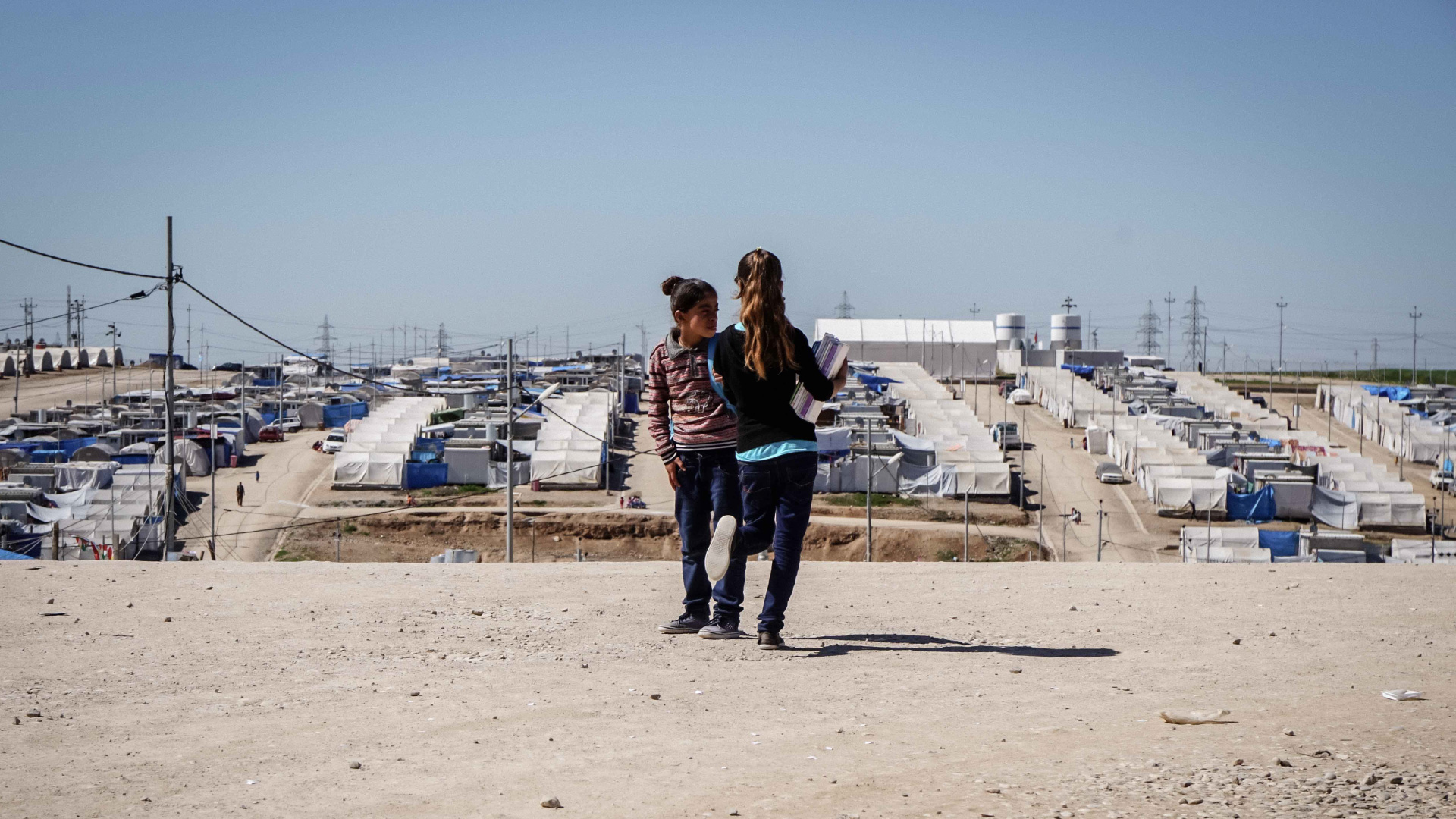
Statement on the Evidentiary Requirements Under the Yezidi Survivors’ Law
Erbil, Iraq – May 14, 2023: Despite the enactment of the Yezidi Survivors’ Law, a highly acclaimed framework designed to provide reparations for survivors of the ISIS conflict in Iraq, thousands remain unable to access promised benefits due to a new requirement which, against a backdrop of continued trauma and fear, forces survivors to file criminal complaints and submit investigation documents with their applications.
The Yezidi Survivors’ Law (YSL), passed by the Government of Iraq in March 2021, has been widely recognized, both locally and internationally, as a groundbreaking response to survivors of crimes committed by members of the Islamic State of Iraq and Syria (ISIS) and as a significant milestone in Iraq’s post-conflict recovery. This law provides reparation measures, both material and symbolic, for survivors of ISIS from the Yezidi, Christian, Turkmen, and Shabak communities, including survivors of conflict-related sexual violence (CRSV). While the passage of this law was an essential and long-awaited step in recognizing the genocide committed against these communities and facilitating the recovery of survivors, obstacles to accessing reparations remain. A key barrier is the requirement that survivors file a criminal complaint and submit investigation documents for their applications to be considered and processed, which has been imposed by the Committee established under the auspices of the Ministry of Labor and Social Affairs (MOLSA) to evaluate applications under the YSL. Maintaining this requirement violates the agency of survivors by preventing them from accessing their promised benefits.
As evidenced by the low number of applicants to date, this decision is prohibiting eligible survivors from applying for benefits under the YSL, as many are either unable or unwilling to file a criminal complaint. Survivors living abroad, for instance, do not typically have the necessary investigation documents and are often unable to return to Iraq to procure them due to protection risks or lack of financial resources, while displaced survivors within Iraq may not be able to return to areas of origin due to security concerns, ongoing ethnic and sectarian tensions, or fear of persecution. Requiring Yezidi children who survived ISIS captivity to initiate investigations against ISIS members and report to the police or judiciary that they were exploited as child soldiers could render them vulnerable to prosecution and increased stigma. Enforcing this decision has proven to be prohibitive for specific categories of eligible survivors, effectively excluding them from the reparations program.
Beyond these barriers, filing a criminal complaint in the city of origin can be a cumbersome, costly, and lengthy process. According to those who have applied, it is also traumatic and invasive, forcing survivors to once again share stories of extreme violence, which have – in most cases – been told and retold countless times in the nearly nine years that have passed since the ISIS conflict. Recounting these narratives is not only retraumatizing, but can place survivors at further risk of stigma, discrimination, and violence in their communities. Emerging evidence of mistreatment at the hands of authorities have reinforced these fears among survivors, some of whom would rather forfeit their reparations than face suspicion, insult, abuse, or violations of confidentiality by attempting to comply with this requirement. Many survivors, including SEED clients, are choosing not to apply at all under these circumstances.
This requirement is not mandated within the YSL or associated regulations, and goes against its stated intent. While appropriate evidence is needed to substantiate claims, the mechanism established under the YSL was designed to mitigate risks of further harm and retraumatization by relying heavily on existing evidence and providing a survivor-centered alternative to long and invasive judicial processes. Ensuring accountability for crimes committed by ISIS perpetrators is a critical justice need that is recognized within the law and should be pursued in parallel. However, as per its founding rationale, the YSL was not intended to function as an accountability mechanism, but, rather, to address the impacts of harm by providing reparations and compensation, protection, and support for the rehabilitation and reintegration of survivors. Ensuring that all eligible survivors can access their right to remedy and reparation without discrimination is key to fulfilling that purpose.
SEED calls upon the Government of Iraq and all implementing bodies mandated under the YSL to demonstrate visionary leadership in addressing the rights and needs of survivors by:
- Removing the requirement to file a criminal complaint as a precondition to applying for benefits under the YSL.
- Exhausting official records and documents from governmental bodies and non-governmental organizations before restoring to other forms of evidence, in line with Article 8 of the YSL regulations.
- Instructing survivors to procure investigation documents only as a measure of last resort, in case of insufficient evidence, and identifying alternative solutions for survivors for whom this process may not be safe, accessible, or even available.
- Issuing authoritative instructions for the Committee on evidentiary standards, in line with the YSL and its associated regulations, to ensure that the application process is survivor-centered and trauma-informed, and that applications are evaluated without imposing additional or undue burden on survivors to prove eligibility.
- Providing clear guidance to survivors, with precise and comprehensive information on the application process and evidentiary requirements, to support them in making successful applications and ensure they can access their promised reparations.
-ENDS-
SEED Foundation is a local NGO in the Kurdistan Region of Iraq, committed to protecting, empowering, and supporting the recovery of survivors of violence and others at risk. Our approach to this mission is integrative and holistic. We provide quality and comprehensive services, including mental health and psychosocial support (MHPSS), legal, protection, and shelter services; training, capacity building, and education for those working to protect and serve survivors; and policy and advocacy to strengthen laws, policies, practices and protections for vulnerable people, and to promote social change.
For more information, please contact: media@seedkurdistan.org
